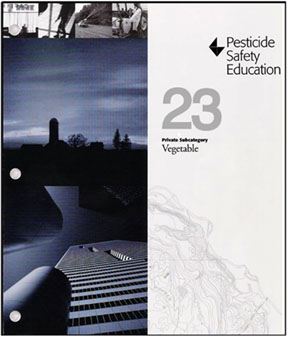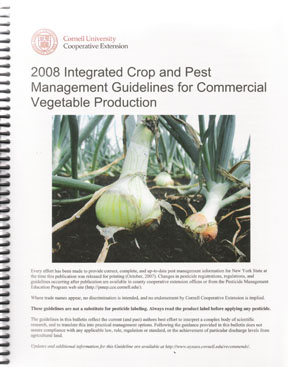PRIVATE APPLICATOR CERTIFICATION
FACT SHEET FOR NEW APPLICATORS
PRIVATE APPLICATOR: Applies restricted use pesticides in the production of an agricultural commodity on property owned or rented by him or her, or on the property of another person with whom services are traded.
ELIGIBILITY
Certified Private Applicator
Must be at least 17 years old.
Have at least one year of full-time experience within the last three years in the use of pesticides in the category in which certification is requested.
OR
Has completed a 30-hr. training course, or has received an associate’s or higher level college degreewhich covers core and appropriate category topics.
Categories of Private Certification
a) Agricultural plant pest control
There are five (5) subcategories for agricultural plant pest control
-
Field and forage (21)
Fruit (22)
Vegetable (23)
Greenhouse and florists (24)
Nursery, ornamentals and turf (25)
b) Agricultural animal pest control (31)
c) Aquatic pest control (41)
Examination Information
Consists of two parts - Core and Category. The Core exam is a 50-question, closed book exam and you are allowed to miss up to 15 questions. Of the 50 questions, there are ten pertaining to a label. If four (4) or more questions are missed on the label, you automatically fail the exam. The commodity exam is a 50-questions and open book. You can miss up to 15 and pass.
The manuals required to take these exams are:
Core Manual
WPS How-To-Comply Manual
Private Recertification Workbook
Greenhouse & Florist Manual
The candidate must also have two DEC booklets, Article 33 The NYS Environmental Conservation Law and Part 325 of the Rules and Regulations pertaining to the application of pesticides. Article 33 and Part 325 booklets should be obtained from your Regional Pesticides Office or the Department's website. Manuals can be obtained from your local Cooperative Extension Office, or from Cornell University in Ithaca (607-255-2080).
Recertification
Recertification occurs every 5th year. You will receive a recertification notice about two months before your card expires. You must submit your original recertification credit certificates, along with the stated fee. Recertification credits are earned by attending refresher courses throughout the 5-year period. Credits needed for private recertification are 8 for Agricultural Animal (Livestock & Poultry) and Aquatics, and 10 for Agricultural Plant (Field & Forage, Fruit, Vegetable, Greenhouse & Florist and Nursery & Ornamentals). Credits must be earned in more than one calendar year and consist of at least 25% category-specific training in each category of certification. To receive notices on upcoming courses, contact organizations relative to your category of certification; i.e., Cooperative Extension Ag Agent, Agway, NYS Vegetable Growers, NYS Christmas Tree Growers, etc. There is also a "Course Calendar" on the World Wide Web. Using a Web Browser program, (Netscape or Internet Explorer) go to this address (http://magritte.psur.cornell.edu/calendar/) and search the database of NYSDEC approved courses. If the required numbers of credits are not earned by recertification time, you can take an open book recertification exam prior to the expiration date of your card. Contact your Regional Pesticide Office for locations and dates.
Late Recertification
You may NOT apply restricted use pesticides or supervise others without a valid ID card. You have 90 days to remit payment and recertification credits or take the recertification exam. If your card has been expired over 90 days, but less than two years, you must submit the original recertification credits, PLUS an additional six credit hours earned after the expiration date of your card. If you haven't earned the required recertification credits; you may take an open book recertification exam. You will still have to earn the additional six credit hours. If you allow your card to expire, contact your Regional Pesticide Office for information on renewal and/or recertification.
Recordkeeping
Each certified applicator must maintain application records. The Department has a recommended form you can use. If requested, these records must be made available to the Pesticide Control Specialist. Records must be kept for 3 years.
Important to update a change in your address
Once you become certified, please notify your Regional Pesticide Office of any address change (even if it changes for 911 purposes).
Please keep track of the expiration date of your ID card. If you do not receive a notice a month before your card expires, contact your Regional Pesticide Office.
Cornell University is committed to making our websites accessible to everyone, including individuals with disabilities. To report a problem or to request an accommodation to access online materials, information, resources and/or services, please contact web-accessibility@cornell.edu. In your message, include the website address or URL and the specific problems you have encountered. You will receive a reply as soon as possible.





